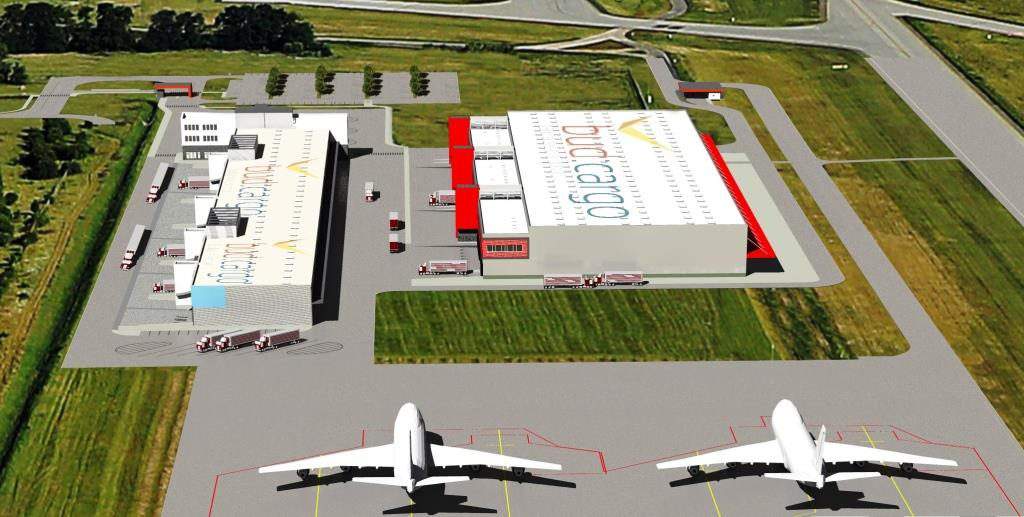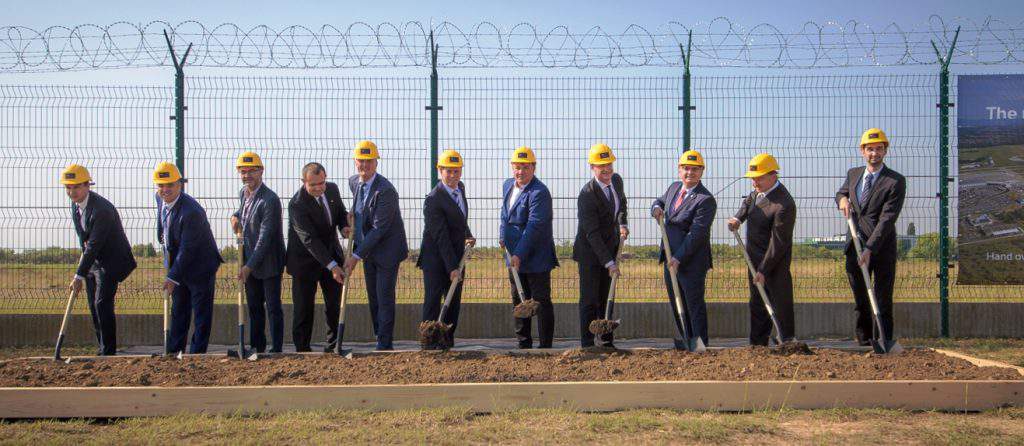Change language:
Budapest Airport: modern cargo facilities are needed, construction of the Cargo City commences

A new, state-of-the-art air cargo handling facility will be available to Budapest Airport’s logistics partners as of the second half of next year, when the first phase of the Cargo City will be handed over, on the Vecsés side of Budapest Airport. The project will cost 32.6 million euros (approximately 10 billion HUF) and is financed entirely by Budapest Airport.
Cargo traffic at Budapest Airport increased by no less than 39% over the past two years, reaching 127 145 tons in 2017, and could approach the 150 000 ton threshold this year.
New cargo-only airlines, namely Silkway and AirBridgeCargo, have joined the ranks of Budapest Airport’s regular partners (Cargolux, Turkish Cargo and Qatar Airways Cargo) in 2018.
The airport operator is best able to satisfy the demands of the increasing cargo traffic by commencing the construction of the Cargo City, on the Vecsés side of the airport.

As part of the 10 billion HUF investment project, a new, 20 000 square meter logistics warehouse will be built, with office spaces, as well as 32 000 square meters of apron areas, able to accommodate two 400-ton Boeing B-747-8F aircraft, each with a cargo payload of 100 tons. The project is expected to be handed over in the second half of 2019. A separate building will be constructed for forwarder companies, undertaking the ground transportation of air cargo. The investment, financed by Budapest Airport, is part of the five-year BUD 2020 airport development plan, in which the airport operator is spending approximately 160-180 million euros (55-60 billion HUF) of its own resources to modernize airport infrastructure.
“Air cargo is of one of Budapest Airport’s strategic developments, whereby we can attract more carriers to Budapest. The Cargo City will ensure that we can handle cargo aircraft with truly world-class, highly efficient facilities, whilst further expanding development opportunities for the Hungarian economy,” said Jost Lammers, the CEO of Budapest Airport.
Róbert Ésik, president of the Hungarian Investment Promotion Agency (HIPA)welcomed the development, which supports foreign investment in Hungary. “Hungary is the world’s seventh most popular investment destination, according to a 2017 market report from America. The construction of the Cargo City contributes greatly to the success of current investment projects and to attract new ones,” he commented.

The new facility is only the first phase of the Cargo City project, as a 1.5-kilometer-long strip of land is available on the Vecsés side of the airport for subsequent developments. René Droese, director property, and cargo for Budapest Airportsummarized the advantages of the investment when he noted: “I am convinced that this is an important milestone for the Hungarian cargo community. TheCargo City will provide an ideal work environment for air cargo operators. Two new cargo airlines, Silk Way West and AirBridgeCargojoined us this year, whilst the aircraft of
Cargolux, Turkish Cargo, and Qatar Airways Cargo have been regulars in Budapest for years. The 10-12 tons of belly cargo carried by intercontinental passenger flights, the airliners of LOT, American Airlines andAir Canada to the north and Air China, Emirates and Qatar Airways to the east provide further export opportunities for Hungarian companies.”
Budapest Airport will be promoting its new cargo capacities, together with Hamburg and Düssel-dorf Airports, at the Air Cargo Forum, one of the largest global air cargo events, to be held in Toronto in the middle of October.
Featured image: MTI
Source: bud.hu







